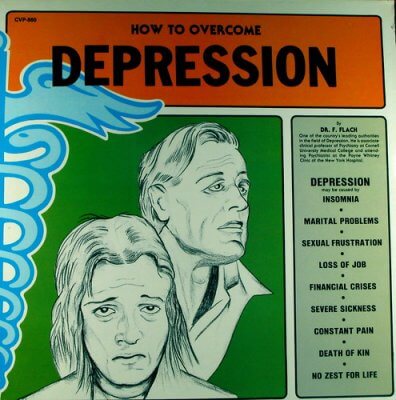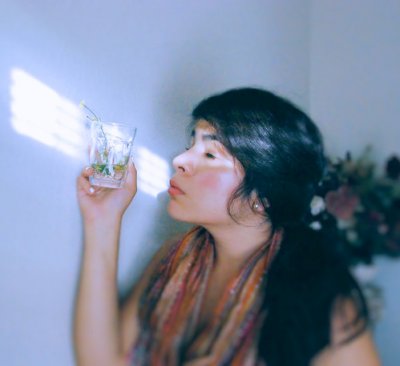How to Stop Being Depressed

By: Kevin Dooley
by Andrea M. Darcy
Struggling with depression, and just want it to go away? Can’t stop thinking, “How can I stop being depressed?”
How to stop being depressed
Depression is not, (contrary to those around you who keep saying such stuffs), solved if you ‘just be positive!’, or ‘don’t let it get you down!”.
Often a mix of genetics leanings, a challenging childhood that affected the ways you think and behave, and current day stress, depression is complicated.
So no, you cannot control depression or decide exactly when it will end. If that was the case, then nobody would be depressed.
On a good note, there are things that can help you manage better when depressed, perhaps shorten the duration of your depression, and mean you are less likely to fall into a continuous cycle of depression. So where to start?
1. Separate ‘you’ from the depression.
The easiest way to feel worse and worse is to identify yourself with the depression.
Depression is a state of being. It’s not who you are. It’s a thing you are going through. And when we go through things, we eventually exit them.
TRY THIS : See if you can ‘catch’ the depression. When a dark thought passes, instead of panicking, welcome it and ‘talk’ to it. “Hello depression. Thank you for sharing, but I’ll leave that thought as yours, not mine”. Sounds silly? Sure, but if you start to feel better, who cares?
Or try mindfulness mediation using our free how-to guide. The more you practise, the more you’ll be able to literally feel that depression is something moving through you, and not you at all.
2. Stop focussing on feeling better.
Think about those people telling you to ‘just smile more’, etcetera. How does that make you feel? Frustrated and worse. It’s the same if you tell yourself to ‘just get over it’.
The problem with an obsessive focus on ‘feeling better’ is that it is a judgement. It insinuates the way you are right now is unacceptable and bad. And judgement triggers deep feelings of shame, the grand master of negative emotions, like a heavy anchor pulling you further and further down.
TRY THIS: Try saying to yourself, “I’m depressed right now, and that’s okay’. How does it feel? And consider statistics — according to the NHS, over one in three people in the UK are suffering anxiety and/or depression at any given time.
There’s nothing that strange, or bad, or faulty about about being depressed, it’s a side effect of our modern lives. You are sad and tired. And that’s okay.
3. Stop fuelling your depression.

By: Favi Santos
Yes, that means forget that idea of drowning your sorrows in alcohol or masking it with drugs. They are proven chemical depressants. No matter how good the high, it’s scientific that you will feel like crap after.
What does help change depression is to take a tip from CBT therapy and its idea of ‘behavioural interventions‘.
This means we focus less on our feelings and more on our actions and behaviours. The more we can choose different actions despite our feelings, the faster we can move through depression.
So be honest about the other things that fuel your depression. The casual sex with an ex or the massive sugar binges, listening to that really sad song on repeat, or calling that family member that is always insensitive.
TRY THIS: Make a list of the things that make your depression worse. Put people, places, and activities on it. Now make a list of all the things that actually feel safe or okay to you, your ‘wellbeing activities’. This can be as simple as making your favourite salad, watching a comedy movie, or having a bath. Each time you want to do a negative action, swap it out for a wellbeing action instead.
4. Move, and then move some more.
There is a story, who knows if it is true, but it should be. It goes like this. A psychotherapist is visited by a client who says, “I’m going to kill myself right now“.
“Great,” the psychotherapist says, “No problem, but you have to walk around the block first.”
And of course after that bit of exercise, the client no longer wants to end things.
Remember, depression has a physical and chemical side to it. And exercise affects our brain chemicals and physical sensations. No big surprise research now connects exercise to better moods.
TRY THIS – Too down for the usual run? Walk. Dance class at the gym seem too overwhelming? Put on your favourite (not sad) song, close the curtains, and dance. Can’t even move you are so depressed? Shake your hands and feet until you start to feel energy. Then sit up. read our article on ‘How to Exercise When Depressed‘ for more inspiration.
Want to really get this to work? Get yourself out the door and near some trees. Nature is now proven to improve our moods.
5. Connect.
The word connect can seem overwhelming when we are depressed and we want to hide under the duvet for, well, forever. Not talk to people!
But connection doesn’t need to involve a long talk with someone you know.
It’s simply about recognising the similarity between you and other humans. And reminding your brain that despite what your depression wants you to think, you are not totally alone, totally different, and beyond comprehension. You are pretty much like everyone else.
TRY THIS: It’s as simple as walking down the street and making eye contact with someone, even just a baby in a stroller. Or having some inane conversation with a cashier at the supermarket about the weather, or even listening to other people complain. Suddenly we are back in the world of the living and like everyone else, and not a weird monster like our thoughts told us.
When you feel better, consider signing up to volunteer. Volunteering is shown to help moods, and it’s a great way to gain new perspective.
And yes, get that support.
When we are knee-deep in depression it feels unbearable to either let people know, or to have to explain. And it’s okay to spend some time not talking, if that feels best for you.
But when support really matters is if your thoughts are becoming menacing and you are considering hurting yourself or others. If you don’t want to talk to someone you know, or don’t feel that anyone you know is ever helpful but rather the opposite? Then do call a helpline. That is what they are there for (try our list of UK helplines).
The volunteers at helplines have devoted time to training in how to help. They WANT to talk to you. It’s what they have chosen to do with their free time.
As soon as you feel a bit better, it is a GREAT idea to seek proper support. Yes, as in counselling. The problem with cycles of depression is that when we are down, we don’t have the wherewithal to book counselling. When we feel better, we think we don’t need it. But push yourself to make a first session. See talk therapy like vitamins — it’s a preventative.
Time to stop the cycle of highs and lows? We connect you with London’s top talk therapists who help with depression. Or use our booking site to find a UK-wide registered therapist or online counselling that you can access from anywhere.
 Andrea M. Darcy is the editor and lead writer of this site, trained in coaching and person-centred counselling. She knows all too well the ins and outs of depression.
Andrea M. Darcy is the editor and lead writer of this site, trained in coaching and person-centred counselling. She knows all too well the ins and outs of depression.






Thank you for inspiring blog post. Every day I have contact with people touched depression. I tried to help them, but still seek some inspiration.
Keep up the good work!